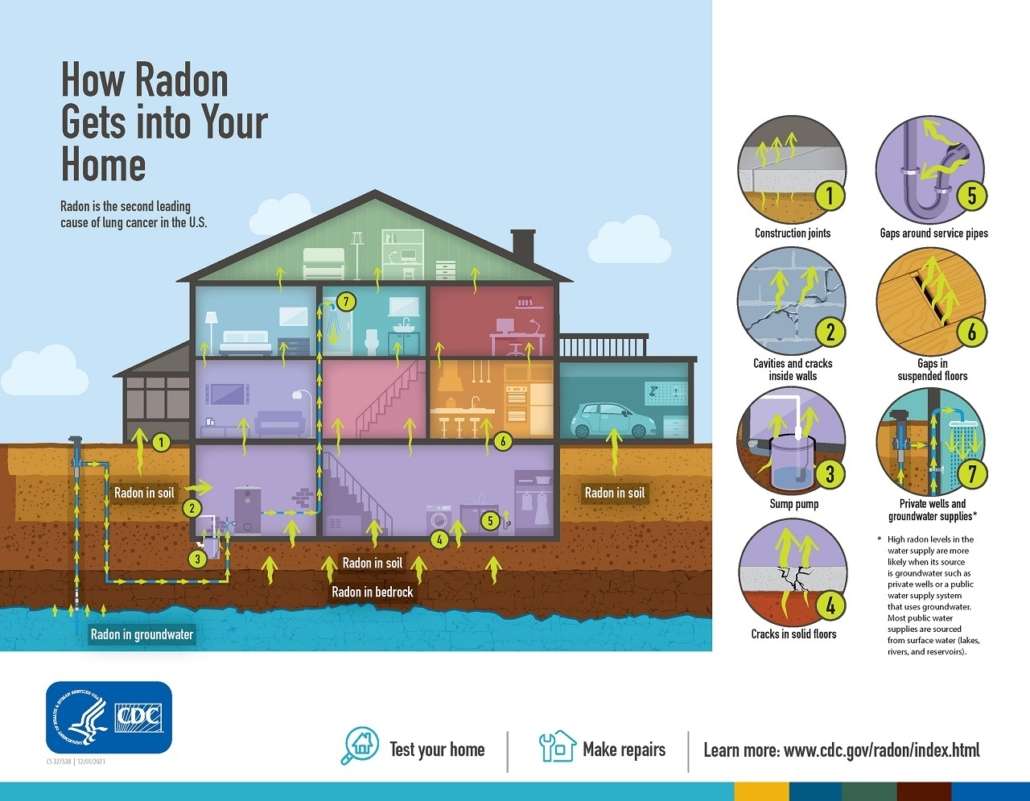CENTRAL ME: Report shows 37% of Maine homes with high Radon levels
 During Radon Action Month in January, the American Lung Association urges everyone to test their home for radon.
During Radon Action Month in January, the American Lung Association urges everyone to test their home for radon.
Radon is the second leading cause of lung cancer and the “State of Lung Cancer” report reveals that it is detected at high levels in about 37% of homes in Maine. During January for Radon Action Month, the American Lung Association in Maine is urging everyone to test their home for radon.
Radon is a naturally occurring radioactive gas emitted from the ground. Radon can enter a home through cracks in floors, basement walls, foundations and other openings. Exposure to radon is the second leading cause of lung cancer in the United States and is the leading cause of lung cancer in people who have never smoked.
Here in Maine, about 37% of radon test results equal or exceed the Environmental Protection Agency (EPA) action level of 4 pCi/L, according to the Lung Association’s “State of Lung Cancer” report.
“Radon is responsible for an estimated 21,000 lung cancer deaths every year and is the leading cause of lung cancer in people who have never smoked. Since radon is odorless, tasteless and colorless, the only way to detect radon in your home is to test the air. This is why it is critical for everyone to test their home,” said Lance Boucher, Director of Advocacy for the Lung Association. “Radon Action Month is the perfect time to learn more about this dangerous gas and take action to protect yourself and your loved ones.”
Do-it-yourself radon test kits are simple to use and inexpensive. EPA urges anyone with radon levels at or above 4 picoCuries per liter (pCi/L) to take action to install a mitigation system in their homes. Both the EPA and the American Lung Association recommend that mitigation be considered if levels are greater than 2 pCi/L. After high levels are detected, a radon mitigation system should be installed by a radon professional.
A typical radon mitigation system consists of a vent pipe, fan, and properly sealing cracks and other openings. This system collects radon gas from underneath the foundation and vents it to the outside of your home. If you need to have a radon mitigation system installed, contact your state radon program for a list of certified radon mitigation professionals.
Learn more about radon testing and mitigation at www.Lung.org/Radon.
The American Lung Association is the leading organization working to save lives by improving lung health and preventing lung disease through education, advocacy and research. The work of the American Lung Association is focused on four strategic imperatives: to defeat lung cancer; to champion clean air for all; to improve the quality of life for those with lung disease and their families; and to create a tobacco-free future. For more information about the American Lung Association, which has a 4-star rating from Charity Navigator and is a Platinum-Level GuideStar Member, or to support the work it does, call 1-800-LUNGUSA (1-800-586-4872) or visit:? Lung.org.
Responsible journalism is hard work!
It is also expensive!
If you enjoy reading The Town Line and the good news we bring you each week, would you consider a donation to help us continue the work we’re doing?
The Town Line is a 501(c)(3) nonprofit private foundation, and all donations are tax deductible under the Internal Revenue Service code.
To help, please visit our online donation page or mail a check payable to The Town Line, PO Box 89, South China, ME 04358. Your contribution is appreciated!





Leave a Reply
Want to join the discussion?Feel free to contribute!